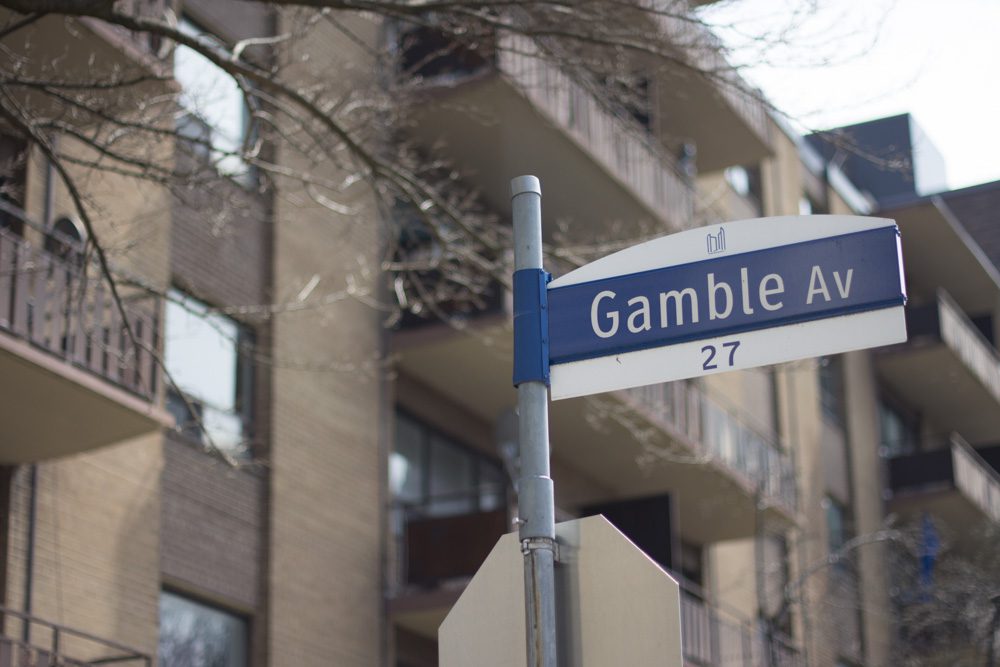The front steps of the apartment building at 27 Gamble Ave. in East York are crumbling. While residents say that it is not one of the worst buildings in the city, it still has its share of tenant complaints and a history of violations of Toronto municipal licensing and standards bylaws.
There were sixteen city investigations listed for the building in 2016, on dozens of defaults ranging from problems with handrails on stairs to broken lights and damaged walls in the lobby. In 2017, there has been only one case reported to the city.
Darlene Dixon has lived in 27 Gamble Ave. for eight years. While she has seen improvements, there are still problems.
Enlarge

The front steps of the building are unsafe and getting worse day by day, according to Dixon. She says residents avoid that entrance completely despite the fact that it is the main way into the building.
Dixon says fire alarms in the building are only tested, on average, once a year. This is a big concern for her.
Windows are not being cleaned by the building, according to Dixon. She has to attempt to clean the outside of her balcony windows herself – which is not an easy task for her because of her age. On top of that, the screen on the door to her balcony has completely deteriorated and because of the slow response time from the building when it comes to repairs, she has taken matters into her own hands – using tape and other added materials to keep the screen in place and in working condition.
The apartment at 27 Gamble Ave. contains 78 units. Despite the city’s orders, the six-storey building still shows signs of exterior problems and issues in the underground parking area.
Toronto Observer made several attempts to contact the building owners, Lloydbrook Investments, but no calls or emails were returned.
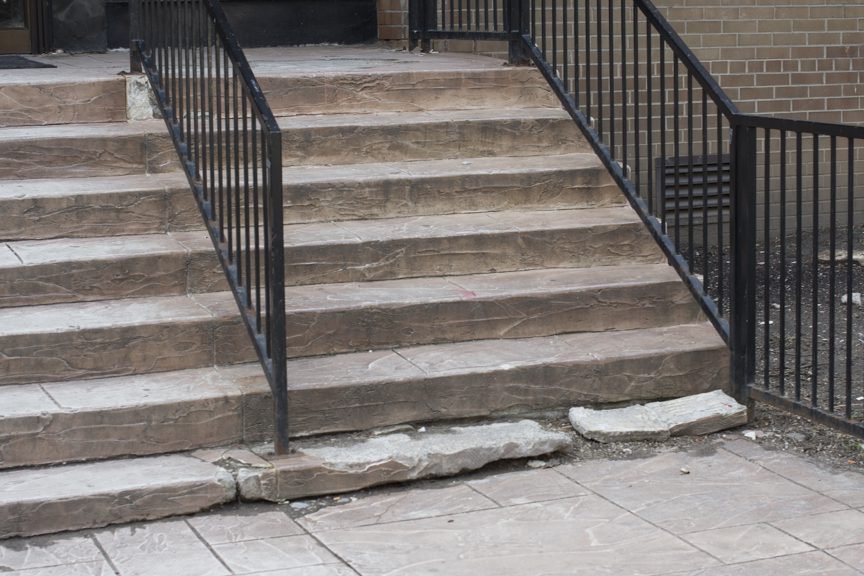
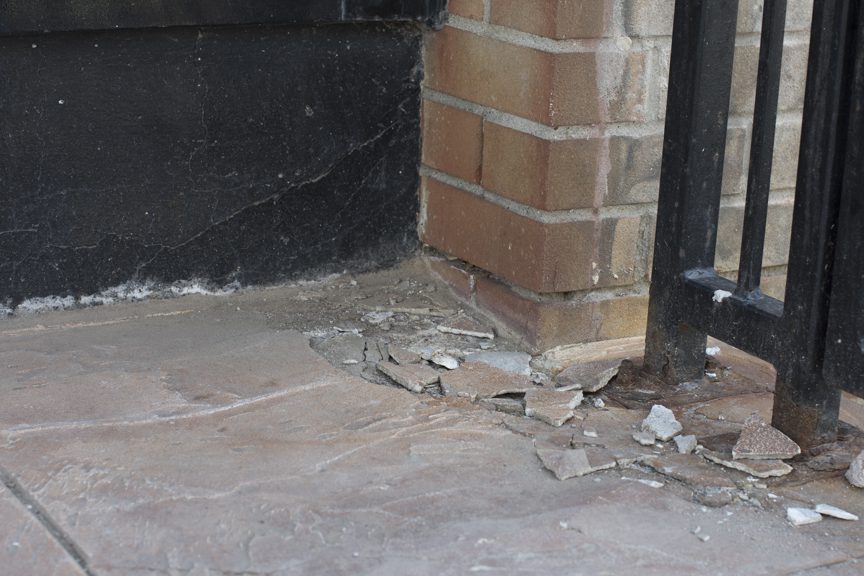
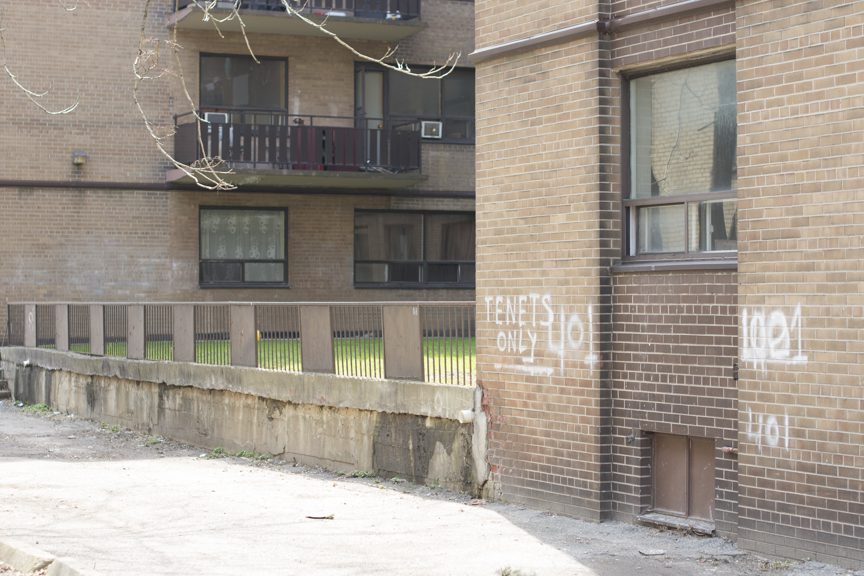
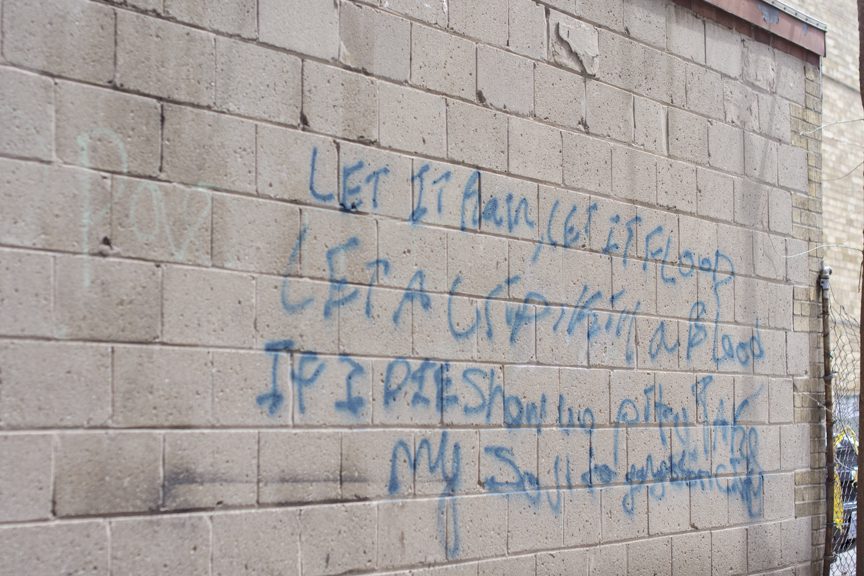
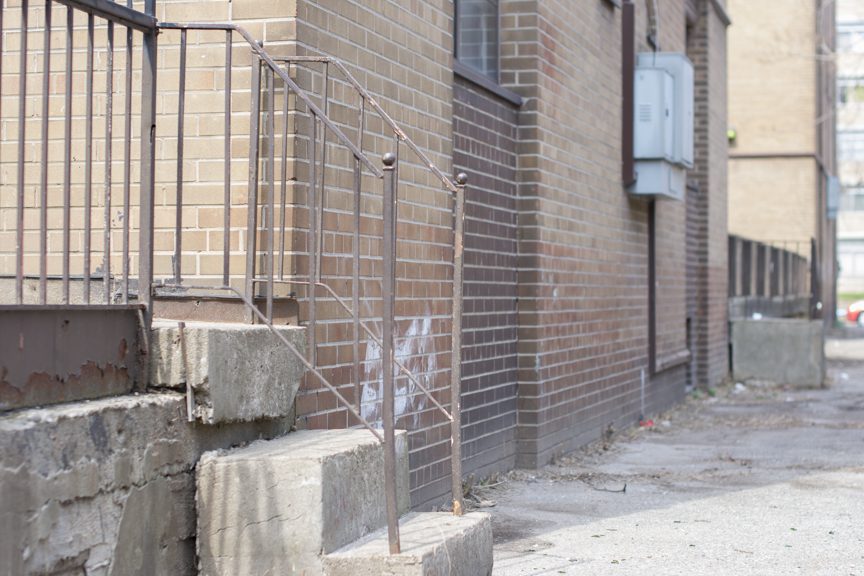
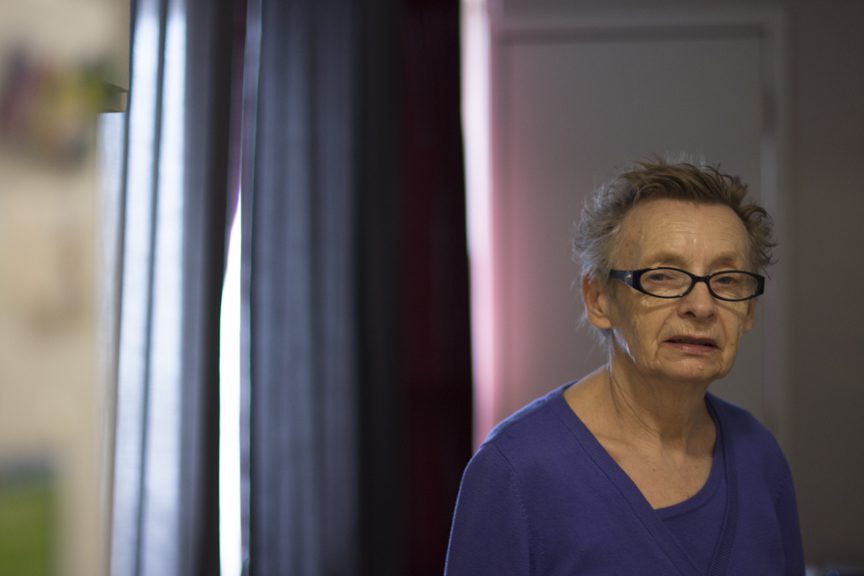
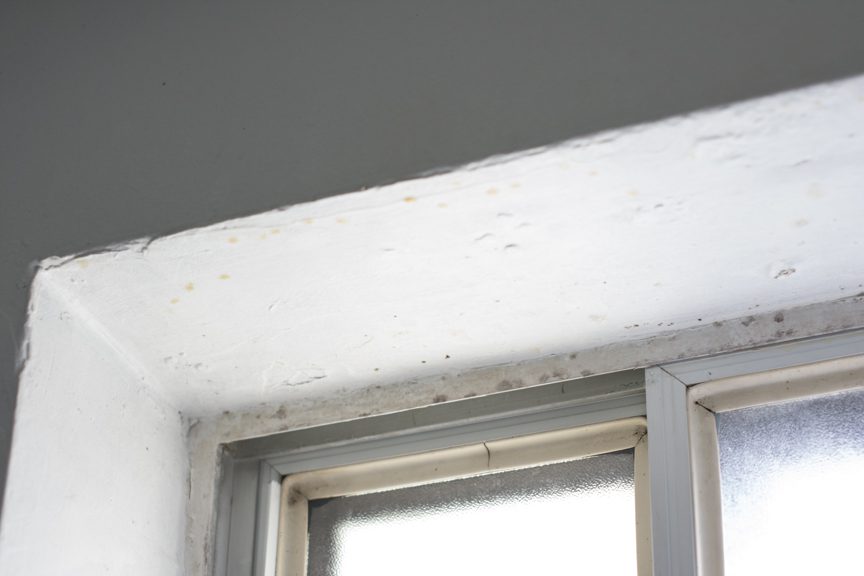
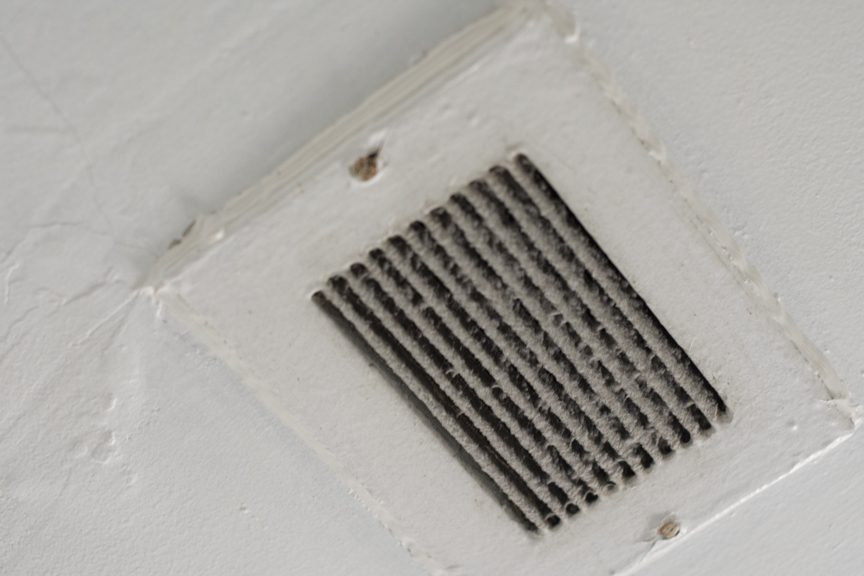
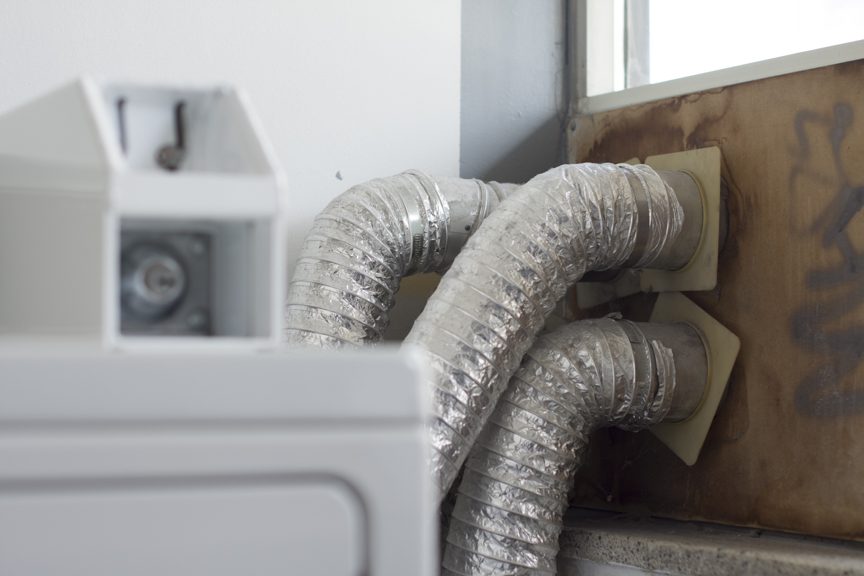
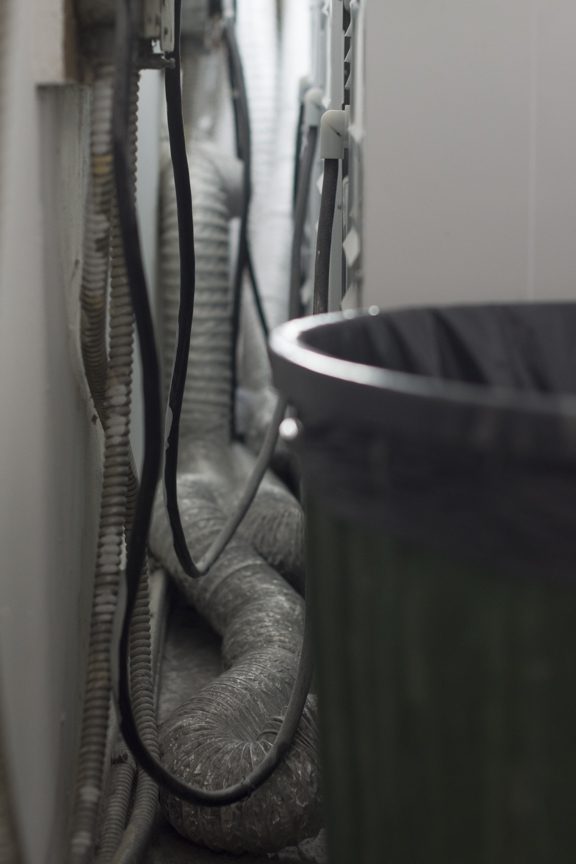
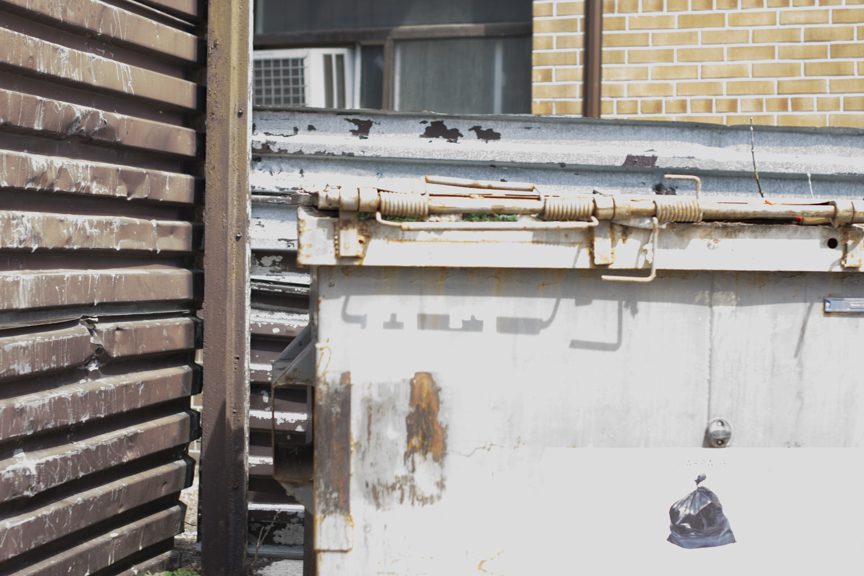
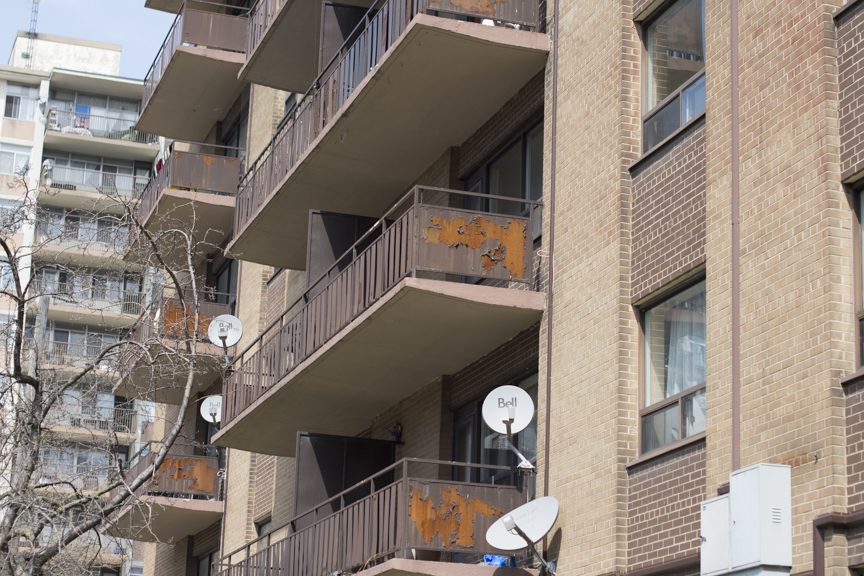
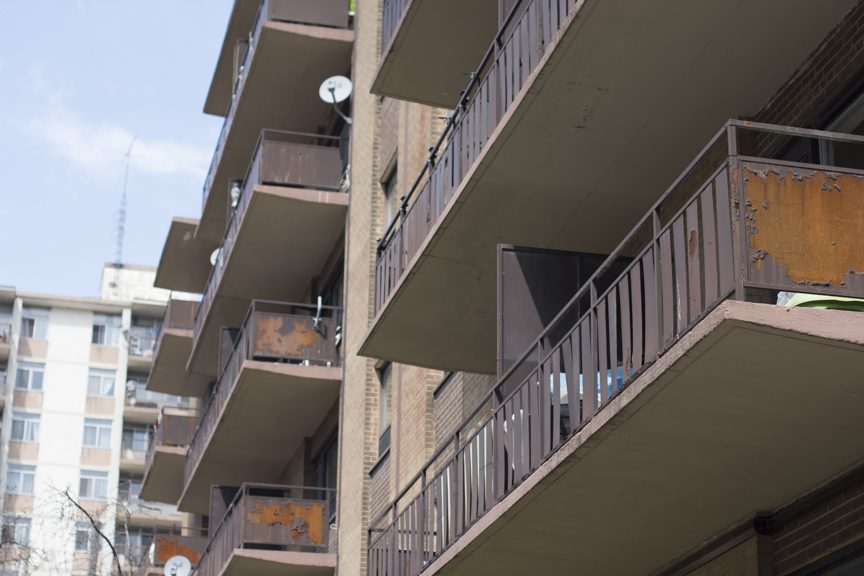
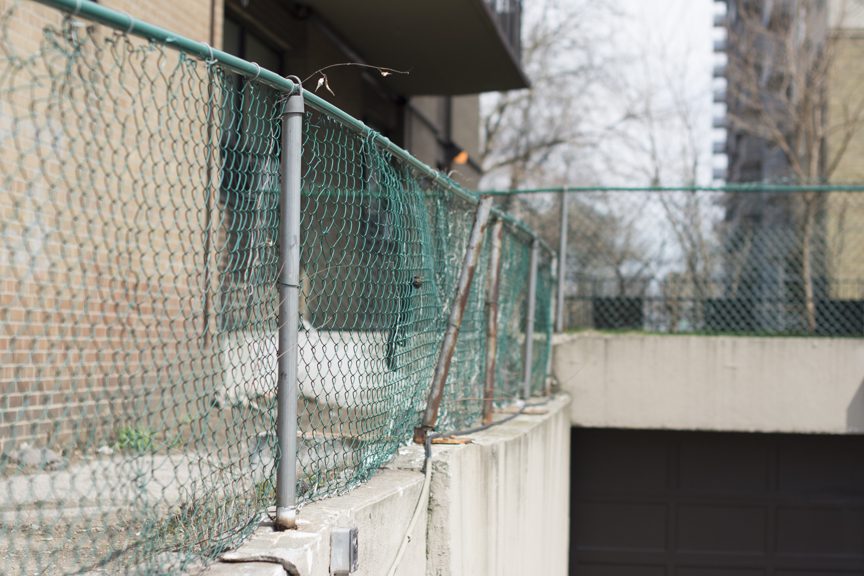
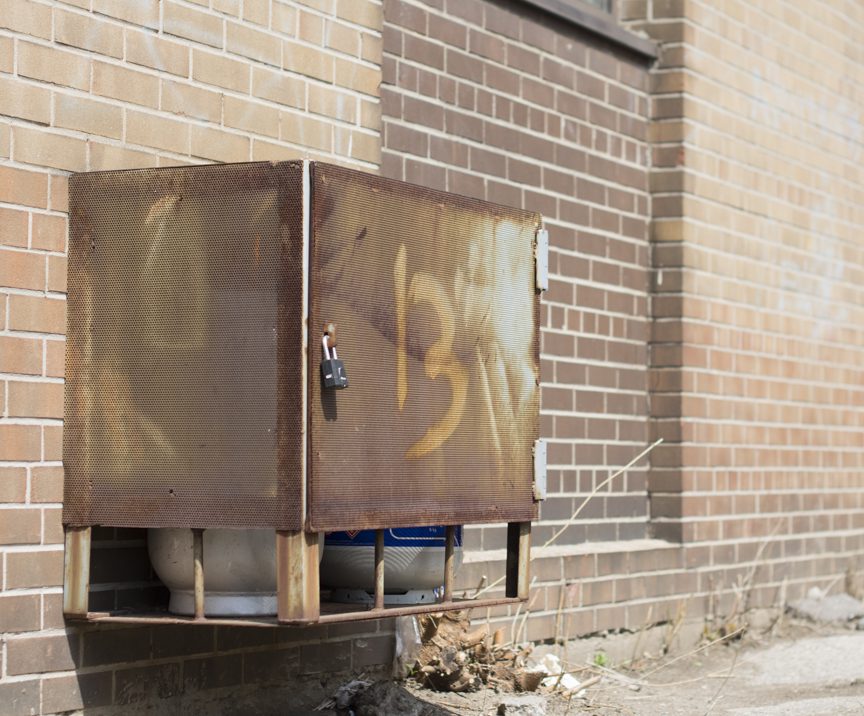
Toronto Observer took a tour of 27 Gamble Ave. to document property standards issues in April 2017.
For 27 Gamble Ave., the new city bylaw passed March 29, 2017 would mean that urgent requests relating to fuel, electricity, gas, heat, cold and hot water would have to be responded to within 24 hours. At this moment, all problems for the building are of the non-emergency type, as they are all located on the exterior of the buildings and in the underground parking lot.
The director of investigation services with the city, Mark Sraga says the benefits of the bylaw are that tenants are kept informed about repairs that are being done in the building, such as elevator shut downs. Building officials will be required to act in a specific time frame if pest problems arise, Sraga says. Sraga says the information that the city is collecting as part of the landlord registration process, will benefit people looking to live in apartments.
“We’ll be providing more information through our website that will help prospective tenants when they are looking for buildings to have a better idea of what features the building may have, what’s important to them,” Sraga said.
Sraga added that if landlords fail to obey rules of the bylaw, they could face fines.
The building 27 Gamble Avenue is also a part of Ward 29 which is represented by city council member Mary Fragedakis.
In an interview with Toronto Observer, Fragedakis touched on some of the issues of the building and also the new building by-law that protects tenant rights.
OBSERVER: There’s a lot of new rules in the new by-law. (42) What steps is the City taking to ensure the apartment management and superintendent staff are adapting to the new bylaws?
Fragedakis: “We are going to have enforcement, we are adding 12 full time staff, to keep an eye on the apartment buildings and that they are following city by-laws.”
OBSERVER: If the new building by-laws are not being followed by building staff, then specifically who will be the ones that are being fined large sums of money? And what happens if they decide not to pay the fine?
Fragedakis: “The fines go against the landlord. If they are not following it, I’m not sure what they are proposing in terms of penalties, but I’m guessing it will go towards the tax bill which is in our jurisdiction. ”
OBSERVER: If building staff is taking a long time to follow up on complaints (more than what the bylaw says they should reply within) what can the residents do then?
Fragedakis: “They need to follow up with (building) staff. They should also contact our office so we could also follow up with the (building) staff on their behalf. We have gone to a number of these tenant meetings and we often find that tenants directly complain to city staff. We are overwhelmed by the number of complaints but I think it’ll be better after hiring the 12 new full-time staff.”
OBSERVER: What happens to the current complains that are still pending and have been for a long time without being fixed? (Example, damaged staircases, out-of-order elevators, for more than 2 weeks)
Fragedakis: “Those complaints still need to be addressed. It’s not like they’re forgotten and we are starting from scratch. All these complaints are still valid.”
Back at the building, Darlene Dixon says she is optimistic about the future. She says previously, complaints took a long time to be worked on, but after the residents took their problems to the city, changes started to happen.
“It’s the old owner who got woken up by the residents who reported him to the city.” Dixon said.
Dixon expresses her contentment with the building’s new landlord.

